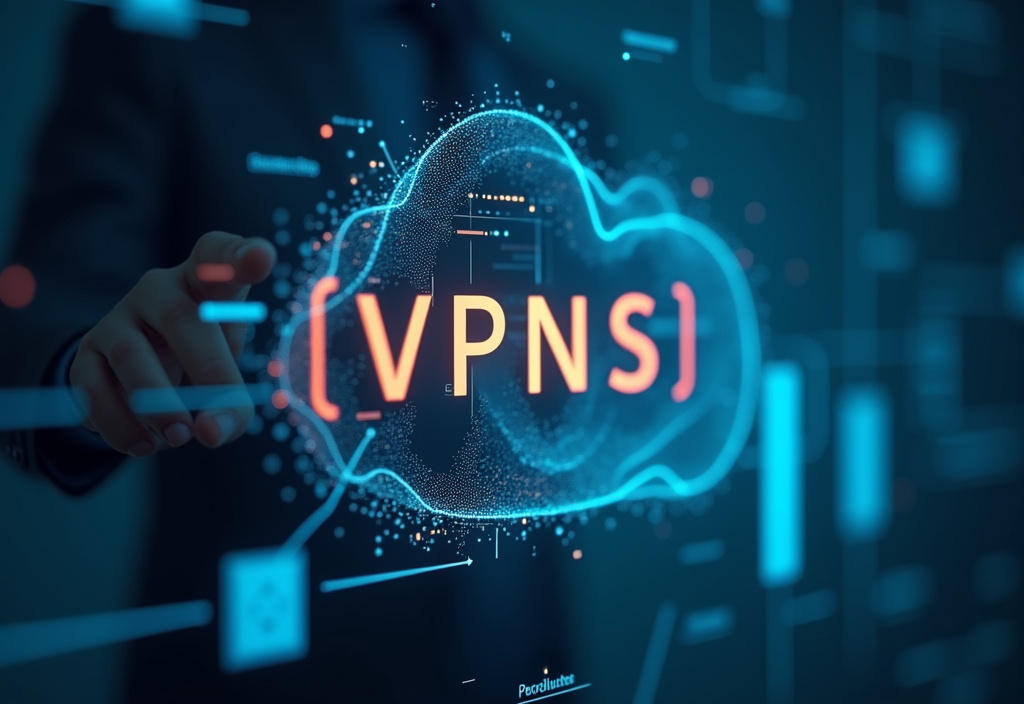VPNs for Indigenous Community Projects: Protecting Cultural Data

Table of Contents
Securing Indigenous Heritage in the Digital Age
The digital age presents both opportunities and challenges for indigenous communities worldwide. While technology offers new avenues for preserving and sharing cultural heritage, connecting with diaspora, and advocating for their rights, it also introduces significant risks to sensitive cultural data. This article explores the critical role of Virtual Private Networks (VPNs) in safeguarding indigenous community projects and protecting their invaluable cultural information.
We delve into the unique security needs of these projects, the essential features of an 'indigenous VPN,' and the practical steps necessary to implement and maintain a secure digital environment that respects cultural protocols and empowers indigenous self-determination. The focus is on creating a culture of security awareness and ensuring that technological solutions are aligned with the ethical and governance principles of the communities they serve, emphasizing the importance of 'cultural security' in every aspect of VPN implementation. The essence of the matter lies in ensuring 'community protection' through means of 'information confidentiality', where the implementation is not considered finished until the Community is able to learn how to be safe, protected and secure with the use of these technologies, and the 'VPN for heritage' becomes a cornerstone of how the community understands, manages and operates in the internet and technology ecosystem.
The safeguarding of cultural heritage and sensitive community information is paramount for indigenous populations worldwide, and a tool like a modern VPN helps with this purpose. In an increasingly digital age, where data breaches and unauthorized access threaten even the most secure systems, the need for robust protection mechanisms is more critical than ever. Indigenous community projects, often dealing with culturally significant and sensitive data, are particularly vulnerable.
This data encompasses ancestral knowledge, traditional practices, sacred sites, linguistic records, and community governance information – all of which are intrinsically linked to the identity, well-being, and future of indigenous communities. The inherent value and often sensitive nature of this data necessitates a security approach that prioritizes confidentiality, integrity, and availability, while respecting the unique cultural context and governance structures of each community. Employing a Virtual Private Network (VPN) presents a powerful solution for bolstering data security and ensuring the privacy required to operate and thrive in the modern digital landscape.
An 'indigenous VPN' goes beyond a standard commercial offering, requiring careful consideration of the community's specific needs, technological infrastructure, and cultural protocols. The implementation must be culturally sensitive, respecting indigenous knowledge and governance. Training and ongoing support are essential to empower the community to manage and maintain the VPN effectively.
The first crucial aspect of a successful indigenous VPN implementation is selecting a provider or building a system that understands and respects the significance of 'cultural security'. This includes adhering to data sovereignty principles, ensuring that data is stored and processed within ethically sound and culturally appropriate jurisdictions, and providing transparency regarding data handling practices. Transparency is key in building trust within the community and ensuring that the implementation aligns with their ethical and cultural values.
Open-source solutions, where the code is publicly available for scrutiny and modification, can offer increased transparency and customization, allowing the community to adapt the VPN to their specific needs and security requirements. In addition, the VPN's authentication protocols must be robust, employing multi-factor authentication and strong password policies to prevent unauthorized access. Regular security audits and penetration testing are essential to identify and mitigate vulnerabilities before they can be exploited.
'Community protection' extends beyond technical measures and into the realm of digital literacy and awareness. Educating community members about online threats, phishing scams, and best practices for data security is crucial to creating a culture of security awareness.
Enhancing Project Data Protection with VPNs
The vulnerability of indigenous community projects stems from a variety of factors, including limited resources, inadequate cybersecurity expertise, and the potential for exploitation by external actors. Lack of financial resources restricts the ability to invest in advanced security infrastructure and ongoing maintenance. This often leads to reliance on outdated systems and software, which are more susceptible to attacks.
Insufficient cybersecurity expertise within the community means vulnerabilities may not be identified or addressed promptly, leaving sensitive data exposed. The potential for exploitation by external actors, such as corporations seeking to profit from indigenous knowledge or individuals with malicious intent, presents a constant threat. These actors may attempt to gain unauthorized access to data through hacking, social engineering, or insider threats.
A well-configured VPN offers a crucial layer of defense against these threats by encrypting data transmitted over the Internet, masking IP addresses, and providing secure access to internal resources. The term 'VPN for heritage' encapsulates the use of this technology to specifically protect sensitive information related to cultural heritage, traditional knowledge, and historical records. The implementation of a VPN must be carefully planned and executed to ensure it meets the community's specific needs and respects their cultural values.
It's not merely about installing software; it's about creating a secure digital environment that empowers the community to manage and protect their own information. The technical requirements of an 'indigenous VPN' must consider the often-limited infrastructure available in remote indigenous communities. Low bandwidth, unreliable internet connectivity, and lack of local technical support are common challenges.
Therefore, the VPN solution must be lightweight, efficient, and easy to manage, even with limited technical expertise. Cloud-based VPN solutions can be attractive as they minimize the need for on-site hardware and maintenance. However, data sovereignty and privacy concerns must be carefully considered when choosing a cloud provider.
Ensuring that data is stored in a secure and culturally appropriate jurisdiction is crucial to maintaining community trust which is an important concept for the 'community protection'. Implementing a successful VPN for indigenous community projects requires a participatory approach, involving community members in all stages of the planning, implementation, and maintenance. This ensures that the solution aligns with their specific needs, cultural protocols, and governance structures.
Regular consultations with indigenous community leaders and elders are essential to ensure that the VPN implementation respects their cultural values and traditions. This collaborative approach fosters a sense of ownership and responsibility, increasing the likelihood of long-term sustainability and success. The training programs should be tailored to the specific technology skills of the community members, using culturally appropriate language and examples.
The training should also emphasize the importance of data security and privacy and provide practical guidance on how to use the VPN effectively. Furthermore, creating accessible documentation, in the native language of the community where possible, can boost the 'information confidentiality' within the project and offer ongoing support and guidance on how to troubleshoot common problems. The sustainability of the project relies in teaching people how to use it and provide basic support for the maintenance and overall security of the VPN.
A train the trainer structure could be useful when providing the technological skills to the community members.
'Information confidentiality' is not merely a technical aspect; it’s a cultural imperative within indigenous communities and projects focused in helping those communities. Many indigenous communities hold certain information as sacred or restricted to specific individuals or groups. The VPN must be configured to reflect these cultural protocols, limiting access to sensitive data based on community-defined roles and permissions.
This requires a deep understanding of the community's governance structures and the different levels of access required for different community members. The 'indigenous VPN' should be configured to support granular access control, allowing administrators to define specific permissions for individual users or groups, ensuring that only authorized individuals can access sensitive data. It is key to the concept of 'community protection' that the access to information is restricted for the benefit of the community, making sure the access is only given to those members that are entitled to it.
Data encryption is a core component of a VPN’s ability to ensure confidentiality. By scrambling data during transmission, encryption makes it unreadable to unauthorized parties. It is recommended to use strong encryption algorithms, such as AES-256, to ensure that the data is adequately protected.
It is also important to avoid using outdated or weak encryption protocols, which are more susceptible to being cracked by attackers. The VPN must employ robust authentication mechanisms to verify the identity of users before granting access to the network. Multi-factor authentication, which requires users to provide multiple forms of identification, such as a password and a one-time code sent to their mobile device, adds an extra layer of security, making it more difficult for unauthorized users to gain access.
The VPN architecture should incorporate logging and auditing capabilities to track user activity and identify potential security threats. Logs should be regularly reviewed to detect suspicious activity, such as unauthorized access attempts or unusual data transfers. A secure VPN implementation also includes a well-defined incident response plan to address security breaches or other incidents.
The plan should outline the steps to be taken to contain the damage, investigate the cause of the incident, and restore the system to its normal operating condition. Communication protocols should be established to inform community members about potential security threats and provide guidance on how to protect themselves. The plan also should be culturally sensitive and respect the community's traditions and governance structures.
The selection of a VPN provider or the development of a custom VPN solution must prioritize data sovereignty. This means ensuring that the legal jurisdiction governing the VPN's operations respects indigenous rights and data privacy. It also involves verifying that the provider's data storage and processing practices align with the community's cultural values.
Regular security audits, performed by independent experts, are crucial to identify and address vulnerabilities. These audits should assess the VPN's technical configuration, security protocols, and incident response plan. The results of these audits should be shared with the community, along with recommendations for improvement.
Ongoing monitoring of the VPN's performance and security is essential to detect and respond to emerging threats. This includes monitoring network traffic, system logs, and user activity. A dedicated security team or consultant should be responsible for monitoring these systems and responding to any incidents that may arise.
'VPN for heritage' serves as a vital component of a comprehensive data governance strategy for indigenous communities, empowering them to control their digital destiny and safeguard their cultural legacy.
VPNs for Services: Securing Online Platforms and Subscription-Based Offerings
Beyond the technical aspects of 'cultural security' and implementing an effective 'indigenous VPN', it's vital to address the broader context of digital sovereignty and indigenous data governance. Digital sovereignty refers to the right of indigenous peoples to control their own data, infrastructure, and digital identities. This includes the right to decide how their data is collected, stored, used, and shared.
Indigenous data governance, on the other hand, encompasses the principles, policies, and practices that guide the management and use of indigenous data. These principles are often rooted in indigenous values, customary law, and self-determination. A VPN is merely one tool that supports digital sovereignty; the community needs to own the tools the VPN gives them and learn how to make them even more secure.
It can facilitate the secure transmission and storage of data, but it does not address the underlying issues of data ownership and control. To truly achieve digital sovereignty, indigenous communities must develop their own data governance frameworks, establish control over their digital infrastructure, and promote digital literacy and empowerment among their members. The process of developing a data governance framework should be participatory and inclusive, involving community members, elders, and knowledge keepers.
The framework should clearly define data ownership, access rights, and usage policies. It should also address issues such as data privacy, security, and cultural sensitivity. The framework should be regularly reviewed and updated to reflect changing circumstances and community needs.
One example of practical data sovereignty can be to host the VPN servers inside the facilities of the indigenous community, guaranteeing the data never leaves its territory and is managed by members of said community. Establishing control over digital infrastructure may involve building community-owned networks, developing local data centers, or partnering with ethical technology providers. The goal is to ensure that the community has direct control over the infrastructure that supports its digital activities.
This allows the members to have 'community protection' of their information, while still being connected to the world. Promoting digital literacy and empowerment involves providing community members with the skills and knowledge they need to use technology safely and effectively. This includes training on cybersecurity, data privacy, and digital rights.
It also involves promoting the use of indigenous languages and cultural content online. The VPN must be a tool to allow the community to grow their technology and digital skills, empowering the future generations to keep using the VPN and teaching coming generations of the importance of 'information confidentiality'. In addition to these efforts, it is also important to advocate for policy changes that support indigenous digital sovereignty.
This includes advocating for laws and regulations that protect indigenous data rights, promote digital inclusion, and ensure that indigenous communities have access to affordable and reliable internet access. It means demanding laws that punish the theft of knowledge and cultural appropriation. The 'VPN for heritage' can protect against external attacks, but it won't work against legal actions that may harm the 'cultural security' of the community.
Collaborative efforts between indigenous communities, governments, and technology providers are essential to create a digital ecosystem that respects indigenous rights and promotes digital equity.
The Future of VPNs: Integration, AI, and Enhanced Security for Subscription Services
In conclusion, securing cultural data for indigenous community projects requires a multifaceted approach that combines robust technological solutions with culturally grounded governance frameworks. An 'indigenous VPN', carefully selected and implemented with community participation, serves as a critical tool for ensuring 'information confidentiality' and bolstering 'community protection'. However, it is essential to recognize that a VPN is only one piece of the puzzle.
The long-term success and sustainability of these projects hinge on fostering digital sovereignty, empowering indigenous communities to control their own data and digital destinies. This involves establishing clear data governance principles, building community-owned infrastructure where feasible, promoting digital literacy and awareness, and advocating for policy changes that support indigenous rights in the digital realm. A truly secure and empowering approach prioritizes cultural sensitivity, respects indigenous knowledge, and promotes self-determination.
The 'VPN for heritage', therefore, should be viewed as more than just a technical solution; it represents a commitment to safeguarding cultural legacy, preserving traditional knowledge, and supporting the self-governance of indigenous communities in the digital age. The implementation of a VPN should not be a top-down, one-size-fits-all approach. It must be tailored to the specific needs, resources, and cultural context of each community.
This requires ongoing consultation with community members, elders, and knowledge keepers to ensure that the solution aligns with their values and priorities. The technical aspects of the VPN implementation should be transparent and understandable to community members. Training programs should be designed to empower them to manage and maintain the VPN effectively, reducing reliance on external experts.
This fosters a sense of ownership and responsibility, increasing the likelihood of long-term sustainability. Furthermore, it’s crucial to promote awareness of the ethical considerations surrounding data collection and use. Indigenous communities have a right to know how their data is being used and to control who has access to it.
VPN providers must be transparent about their data handling practices and adhere to strict privacy policies that respect indigenous rights. The fight for 'cultural security' involves teaching the members of the community how to be safe from external attacks and scams on the internet, but also ensuring that there are legal consequences for those who steal knowledge and appropriate the culture. Building strong relationships with ethical technology providers is also essential.
These providers should understand and respect indigenous values and be committed to supporting their digital sovereignty. They should be willing to work collaboratively with communities to develop customized solutions that meet their specific needs being the 'indigenous VPN' the starting point for most communities. The technological solution most not be an imposition, but a collaboration path where the ancestral wisdom of the community blends with the possibilities and security that technology can provide.
Finally, securing cultural data for indigenous community projects is an ongoing process, not a one-time event. It requires constant vigilance, regular security audits, and a commitment to continuous improvement. By embracing a holistic approach that combines technology, governance, and cultural sensitivity, indigenous communities can harness the power of the digital world to preserve their heritage, strengthen their communities, and shape their own futures.
Stay Updated
Get the latest VPN news, tips, and exclusive deals to your inbox.




